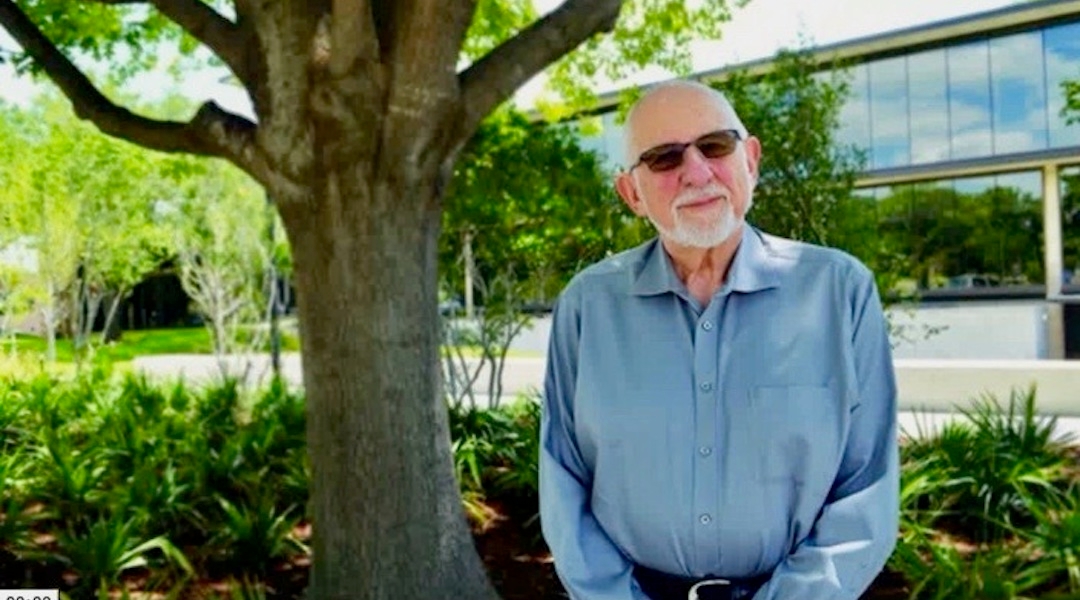(JTA) – The Reform movement’s rabbinical association has expelled Sheldon Zimmerman, a former leader of major Reform institutions, after an ethics committee reinvestigated allegations of sexual misconduct lodged more than 20 years ago, including that he abused a 17-year-old congregant.
The announcement of Zimmerman’s expulsion was made Tuesday when the Central Conference of American Rabbis added his name to a public list of rabbis found to have violated the association’s code of conduct.
Zimmerman, 81, served as president of the rabbinical association for two years, and later as president of the Hebrew Union College-Jewish Institute of Religion, the movement’s seminary.
His expulsion provides a measure of closure in a reckoning that has gripped the Reform movement for nearly two years, after the full nature of Zimmermans’s alleged misconduct first came to light and set off a crisis of trust among rabbis, lay leaders, and congregants.
“Sheldon Zimmerman should have no place in our movement, nor any place of honor, nor position of leadership — especially of programs serving young adults,” Rabbi Mary Zamore, executive director of the Women’s Rabbinic Network, said in a statement. “This was a collective failure and one that should not be repeated. We wholeheartedly support the Central Conference of American Rabbis’ moral, responsible and compassionate decision to expel him from its membership.”
The original investigation into Zimmerman concluded in 2000 with his resignation from Hebrew Union College and a suspension from the rabbinical association. But with allegations against him described publicly only in vague terms, Zimmerman retained much of his prestige and status. He went on to hold leadership roles at Birthright and the Jewish Federations of North America and, in 2005, CCAR reinstated his membership.
Then, in 2021, New York City’s Central Synagogue, where Zimmerman had been rabbi from 1972 to 1985, revealed that three women came forward to accuse Zimmerman of sexual misconduct during his tenure and that these allegations were related to his earlier disciplinary action.
In the months following the news about Zimmerman, the Reform movement hired law firms to conduct three separate investigations into the movement’s accountability mechanisms, revealing past failures around sexual misconduct.
Zimmerman’s listing on CCAR’s webpage of expelled rabbis says that his case was reopened in 2021 when new information surfaced indicating that he had violated the terms of his reinstatement, which required he undergo a process of teshuvah, or making amends.
The listing doesn’t specify how he had erred, but an article published in 2021 by Gary Rosenblatt, the former editor of New York Jewish Week, shed light on how Zimmerman viewed both the allegations against him and his responsibilities under the teshuvah process.
According to Rosenblatt, who cited emails he received from Zimmerman in 2005, Zimmerman believed that his accuser was seeking revenge against him. “This is about destroying me and my family,” Zimmerman wrote to Rosenblatt.
Zimmerman also reportedly threatened to reveal the identity of his accuser. “She may leave us no recourse but to respond to her in public and by name, and to lift the veil that has protected her and her actions,” Zimmerman wrote in an email, according to Rosenblatt.
At the time, Rosenblatt refrained from publishing the allegations and Zimmerman’s comments in response in order to protect the identity of the accuser.
In 2021, the rabbinical association’s ethics committee began investigating Zimmerman anew and ultimately expelled him for violations of sections of the rabbinic code of conduct that have to do with “exploitative practices,” “bullying, harassment, intimidation” and “power differential[s]” as well as failure to cooperate with terms of suspension.
Zamore applauded steps taken by Reform institutions to address issues of safety, respect and equity, and vowed to keep pressing for accountability.
“We continue to encourage anyone who has a story of sexual abuse, harassment, misconduct or discrimination to please continue sharing those truths,” she said in the statement.
The list of Reform rabbis who have been expelled, suspended, or publicly censured is updated occasionally to reflect the results of a private ethics investigation.
Besides Zimmerman, recent months have seen at least three additions to the list. Allen Secher, who retired from the pulpit in 2013 after serving most recently in Whitefish, Montana for 13 years, was censured under sections of the code of conduct relating to “sexual misconduct” and “requests for sexual favors.” Gersh Lazarow, a rabbi in Australia, was censured for intellectual dishonesty for having plagiarized sermons. David Kaufman, who led a congregation in Ohio, was expelled following his conviction in an Ohio court for gross sexual imposition.
JTA has documented Jewish history in real-time for over a century. Keep our journalism strong by joining us in supporting independent, award-winning reporting.






